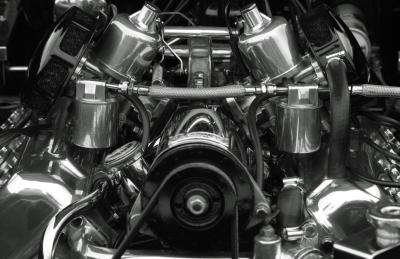
Some people use the terms "timing belt" and "serpentine belt" interchangeably. However, these two engine components have entirely different functions. Both play vital roles in the operation of a vehicle and should be regularly checked for wear or damage.
The timing belt connects the crankshaft of a car to the camshaft(s). Its purpose is to ensure that the valves open and close in sequence with the pistons. Not all vehicles have a timing belt.
The serpentine belt, or drive belt, connects and operates a number of engine accessories, including the air-conditioner compressor, water pump and alternator. Most newer passenger vehicles have a serpentine belt.
If the timing belt breaks while the vehicle is in operation, the pistons could strike the open valves, which may result in damage to the pistons, valves, and/or cylinder head, leading to expensive repairs and possible engine replacement. If the serpentine belt breaks while the vehicle is in operation, everything driven by the belt will cease to operate.